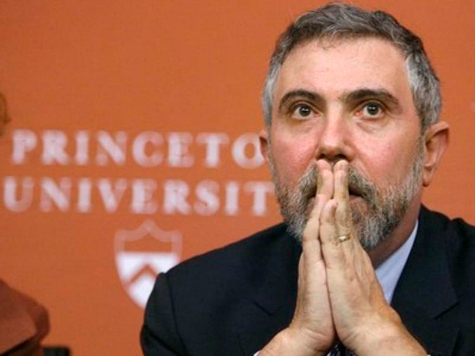
In a surprising move, Nobel laureate Paul Krugman announced in his New York Times blog last week that he is moving his academic home from Princeton University to the City University of New York (CUNY) in 2015. Though the two campuses are physically separated by less than 100 miles, the prestige and reputation gap between the two is enormous.
In 2013 U.S. News and World Report rated Princeton University as the number one ranked national university in America in 2013. CUNY, in contrast, the number forty-three ranked northern regional university, is not even considered a national university.
Along with the change in venue for Krugman comes a change in academic focus from economics, the field in which he made his professional reputation, to public policy, the field in which he has become a household name as an unrepentant apologist for the progressive political philosophy of the Democratic party.
Krugman, who won the 2008 Nobel Prize in Economics for his work in international trade, has been a professor of economics at Princeton since 2000. He became a New York Times columnist in 1999. He has used that platform and frequent media appearances to transform himself from a little-known academic to a highly visible public intellectual.
As Krugman tells it, he wanted to move his base of operations from suburban Princeton, New Jersey, to New York City itself. “It is in no sense a commentary on Princeton,” he said, “which has been a wonderful place for me professionally and personally.” However, he added, “the center of gravity of my work has shifted over time toward more of a public policy focus.”
“[M]ore and more of my work has focused on issues of income inequality,” Krugman said, “and nobody does more important work producing the hard data on which all of this work relies than the Luxembourg Income Study, directed by Janet Gornick, professor of political science and sociology at the Graduate Center of CUNY… [T]o my surprise the Graduate Center offered me a faculty position as well, which I quickly realized would be a wonderful thing.”
Michael Tomasky, in his 2007 review of Krugman’s The Partisan for the New York Review of Books, observed that Krugman is no longer a “center-left scholar,” but instead is now a “liberal polemicist.”
In recent years Krugman has become known more for his wildy speculative diatribes attacking the Tea Party movement.
In his April 12, 2009 New York Times column, for instance, written just weeks after the Tea Party’s launch, Krugman made the claim, now thoroughly discredited by Harvard University Sociology Professor Theda Skocpol’s 2011 book, that “it turns out that the tea parties don’t represent a spontaneous outpouring of public sentiment. They’re AstroTurf (fake grass roots) events, manufactured by the usual suspects.”
In contrast, in his October 7, 2011 Times column he celebrated the short lived “Occupy Wall Street” protests. “Occupy Wall Street is starting to look like an important event that might even eventually be seen as a turning point,” he wrote. He added, “The protesters’ indictment of Wall Street as a destructive force, economically and politically, is completely right.”
On November 1, 2013, ignoring that the Tea Party movement’s three core values from its inception have been fiscal responsibility, constitutionally limited government, and free markets, Krugman wrote in his Times column, “I still sometimes see pundits claiming that the Tea Party movement is basically driven by concerns about budget deficits. That’s delusional.”
Bloomberg News reported that Krugman “will join visiting scholar David Petraeus, former head of the CIA, and CUNY Board of Trustees Chairman Benno Schmidt, a former president of Yale University, among the prominent names now at CUNY.”
Bloomberg News also noted that “CUNY’s undergraduate reputation began to fade when it opened admissions to all city high school graduates in the fall of 1970 – a policy that lasted 30 years.”
Krugman’s hiring is part of a long term plan to make CUNY more competitive with more prestigious universities in New York City like Columbia and New York University.
It is not the first time CUNY has tried to bolster its reputation by hiring a well known “public intellectual.” In 1966, CUNY hired historian Arthur Schlesinger, Jr., well known for his role as a friend and adviser to President John F. Kennedy, to be the Albert Schweitzer Professor of Humanities. Unlike Krugman, who has a PhD. in economics to go along with his Nobel Prize, Schlesinger never earned a PhD.
Krugman’s salary at CUNY has not been reported.

COMMENTS
Please let us know if you're having issues with commenting.